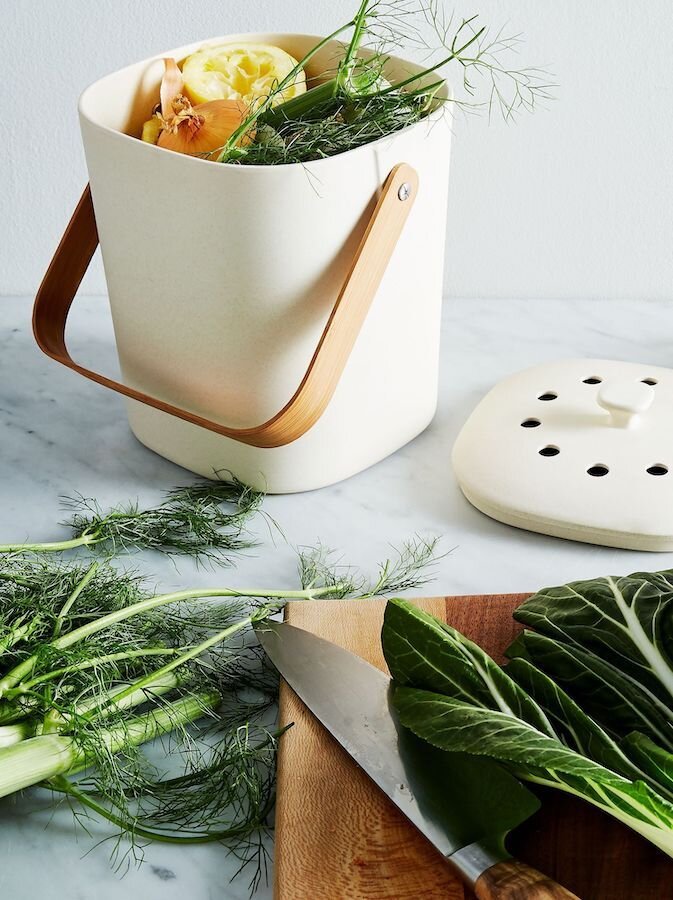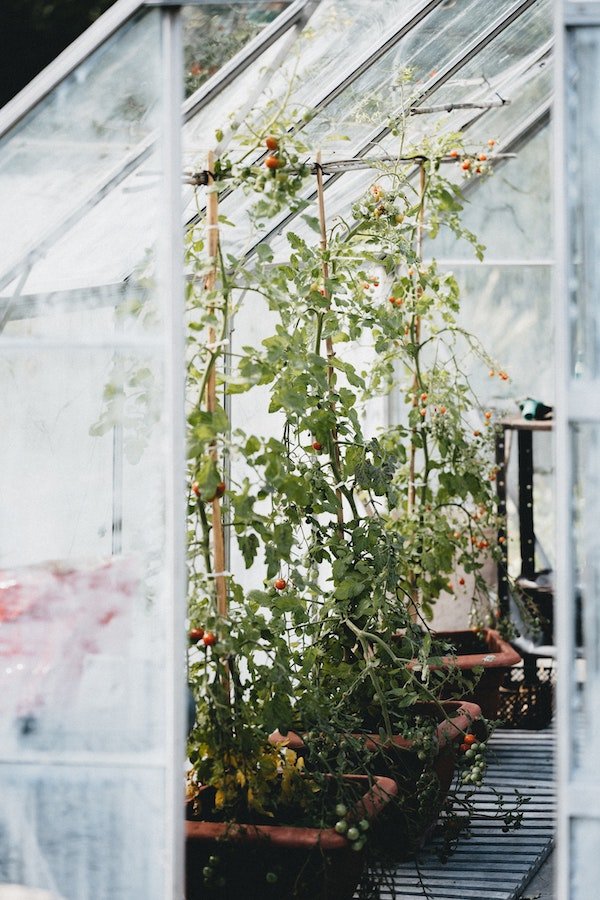
How To Create Low-Waste Habits That Work For You
Low-Waste Habits For Everyone
When it comes to creating and sticking with low-waste habits, we’re all always works-in-progress. And one of the most important steps in living more sustainably is being able to reevaluate your choices regularly. Every decision makes a difference—from the small (like avoiding single-use plastics) to the more intensive (like starting a compost pile in your backyard).
It’s important we look at a low-waste lifestyle from all angles, too—we can reduce our waste, yes, but we can also reuse what we have, shop secondhand, and stay mindful of our water and energy usage.
Here, we’ve outlined some tips on how to up your low-waste ante—no matter where you live or what season of life you’re in.
Low-Waste Habits For College Students
-
Go beyond a reusable cup with a reusable kit. Sure, it’s important to fill up your reusable water bottle from on-campus water fountains—but while you’re at it, consider investing in a reusable coffee cup, straw, cloth napkin, cutlery, and tote bag for groceries.
-
Use eco-friendly textbooks, planners, and notebooks. You certainly can’t survive college without these essentials! But consider buying secondhand or digital books when possible (these sites are best for buying used textbooks). You can also take notes electronically or buy notebooks made of recycled paper. Resell textbooks when you’re done with them. And, look into your college library’s offerings—some libraries carry copies of textbooks you’ll need for class, so instead of buying them yourself, you can head to the library for your note-taking and studying.
-
If you live with roommates, cook together. Not everyone’s schedules line up, but when they do, cooking one meal a night instead of three separate meals saves energy, and reduces takeout container waste.
-
Lead by example. When you’re often surrounded by roommates or friends, living as sustainably as you can sometimes rubs off on others.
Low-Waste Habits For City-Dwellers
-
One of the biggest benefits of city living is the many transportation alternatives. Walk or bike to the store, restaurants, and work if possible. And when the weather isn’t great, take the bus or subway instead of an Uber or your car. If you don’t have a car (and you often don’t need one in the city!), use car-share services like Zipcar and Turo when you need to make a quick trip.
-
Head to the zero-waste store. The closer you live to a city, the more likely you are to have zero-waste stores where you can stock up on tons of essentials, like hair and body products, wooden and reusable tools, cleaning products, tissues, coffee filters, and so much more. Your local grocery stores might have zero-waste sections, too, where you can bring empty jars and grab ingredients like dried beans, rice, nuts, and coffee. Check out this state-by-state list from Litterless, noting zero-waste shops around the USA.
-
Use composting services. Check what options your city has—maybe they offer curbside food waste pickup along with trash. If not, check out food waste pickup services near you that you can subscribe to for a modest monthly fee. Keep a small food waste bin in your kitchen, and you’ll be surprised how much can be diverted from landfills and turned into compost instead. These countertop composters are great for city dwellers too!
Low-Waste Habits For Folks in Rural Areas
-
With more required driving and fewer options for buying products in person, it can be a challenge to reduce your waste in more rural areas. Become as mindful as you can of your online shopping—while it’s necessary for many products, try to shop in bulk when you can, whether for groceries, personal care items, or home goods. Here are alternatives to Amazon for online shopping.
-
More space has one big benefit—if you have a yard, consider composting! It’s easy and cheap, and you can start here with a step-by-step guide. If you won’t use all your compost for gardening, you can likely find neighbors or local farms who will.
-
Another yard benefit—you can start to grow your own food! Eating veggies grown in your own backyard eliminates food packaging and transportation emissions it typically takes to get your food to the grocery store and then back to your house, not to mention the water waste and pesticide use of commercial farms.
-
Check what is and isn’t recyclable in your town. In many rural areas, not all waste is recyclable—for example, some towns can’t recycle glass or #5 plastics, so when you need to buy a product that isn’t recyclable, try to reuse them.
Low-Waste Habits For Parents
-
Since babies outgrow clothes so quickly, look for secondhand pieces from friends and family, Facebook Marketplace, Craigslist, and buy nothing groups.
-
Toys are outgrown almost as quickly as clothes. Keep your eyes peeled for toy libraries in your area, and you can try to share toys with children of friends and family.
-
Try reusable diapers. It’s daunting, we know, but it saves a ton of waste in the long run. Check out Parents’ guide to cloth diapers for modern parents.
General Low-Waste Tips
-
Switch to a small trash can so you can become more aware of how much waste you are creating.
-
Make your own kitchen staples. Some easy ingredients you can make yourself include pickles, salad dressing, yogurt, veggie or chicken stock, bread, non-dairy milks, broccoli sprouts and microgreens, tortillas, and pasta. Spending hours in the kitchen each week might not be for everyone—but if it fits your schedule and interests you, make what you can! It’ll taste fresher, reduce waste, and you might find a new favorite hobby.
-
Check sites like Freecycle, Facebook Marketplace, and Craigslist when you’re in the market for things like home goods. Not only is it a great way to shop secondhand and keep items out of landfills, but you can also score incredible deals like free furniture.
-
Crackdown on food waste! With a little more effort, it’s pretty easy to prevent. In your fridge, try to designate a spot for new ingredients and a separate spot for ready to be used ingredients, so you’re not overlooking older food and letting it go to waste.
-
Save shipping materials, like small boxes, bags, and bubble wrap. They usually come in handy eventually, and that way, you won’t have to purchase new packing materials.
Natalie Gale is a Boston-based freelance journalist. When she’s not writing about art, food, or sustainability, you can find her biking to the farmers’ market, baking, sewing, or planning her next Halloween costume. Say hi on Instagram!






